|
In this post I’m going to try to define the different ways of traveling, are you a tourist? An avid history explorer? A hidden secrets hunter? Find out here! When traveling comes to your mind, probably it will be in a different way to the person that you have at your side, maybe you prefer a more adventurous trip but your friend prefers just chilling on the beach? Both ways are OK but one can give you something that the other won’t, and vice versa. Just to make it simple and what this article will be about, I will describe the different kinds of traveling (E.g.: Exploring Spain with a car from north to south is not the same as going to a resort in Mallorca). While this list is completely made up based on my experience, I think you can apply these patterns to real life. I include examples to make it easier to understand and I also will highlight pros and cons of each one. Don’t forget that during the same trip you can become a different kind of traveller depending on the place/activity you are doing, for example, first, you can backpack Mexico and later spend a week just chilling in an All-Inclusive Resort in Cancun. And also, an important note: All these kinds of traveling are OK, you are not a “better” traveller if you stay with locals rather than just go out and getting wasted in another country, but the last will be lying (as many people do) saying that “they experienced the country”. I want to remark this because there are so many articles in the Internet that make you think that because you are carrying a DSLR camera on your neck, stay in a hotel and attend organized activities you are worse than “the alternative” person who just travels with his/her backpack. "Typical" Tourism Of course, everybody did this at least once in their lives, either with their parents or with friends: going to a safe destination and just check the main landmarks, eat in the restaurant of the hotel or tourist guide recommended and basically just taking pictures and visiting main museums. I think this covers about 80% of people, there is nothing bad with it, just you see the country as a big museum, you don’t really get to experience it but in return you may get a more relaxed time and don’t worry about organization too much.  Since this is the most common thing I guess you don’t need an example but think of it as a traveller who goes to London, checks Big Ben, Parliament, rides a double-decker and makes an Instagram picture in a red phone cabin. Next day he/she eats fish and chips and checks the main museums like National Gallery or British museum, later going back home. Or that people who go to Barcelona just to check the landmarks around Ramblas and Paseo de Gracia, entering Sagrada Familia, eat a paella and relaxing on the beach. Did they see London and Barcelona? Yes, BUT just about 20% of it, plus they didn’t experience what locals do neither went into detail of the backstory of the city. For example, NO SPANISH PERSON would ever eat Paella and call it a real Paella outside of Valencia region, or pretend they are watching a real Flamenco show in the city (It’s typical from a region 1000 km from it).
Party Tourism  You want to party, and party hard, but instead of getting wasted in your local pub you prefer to choose somewhere more exotic. This is a great plan to get tons of fun with your friends, as millions of Brits and Germans do when they go to Mallorca and Ibiza to live the summer of their lives, or people who go to exclusively to a festival in a foreign country. While you can have a lot of fun doing this (I have done it in Budapest and Greece, for example, I’m not criticising no one, a little party never killed nobody) but you need to understand that you are not experiencing the country AT ALL, people who just mass party on a Greek island or get drunk in Mallorca will realize that there is almost no Greek or Spanish person going to the clubs and bars where they are, because basically you are going out in an international party area.  Example: As mentioned, a legion of British and German tourists who go to “Mallorca” but instead they go to a party town called Magaluf and never leave it, the town has an overwhelming majority of foreign population and 90% of people going out there are either British or Germans, being an area heavily avoided by locals, but, to be honest, it is a party paradise.
Beach/Mountain Tourism 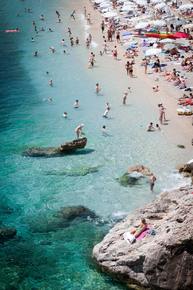 Many times, we choose a destination for a certain thing, a lot of people from Northern Europe come to Spain just in search of the sun, and to relax on a beach after a long working year, or go to Switzerland or Italy to ski in the awesome Alps during winter, or hike them in summer. Focusing on relax or sports is a great way of traveling too, I live in a very varied region named Aragon (check the amount of things we have here in this video), but I understand that for somebody who lives in a rainy peripheral town of London, chilling on the sun in Canary islands may seem more attractive than doing the St James Path, or that somebody who lives in a flat region (like The Netherlands, Baltics or US West Coast) really wants to hike on a high mountain environment to make a change. This may apply to people who go to Nepal to hike really high mountains or to Maldives to chill on a paradise beach.
“Fake backpacker” Tourism This one has become kind of a trend, people who get a backpack and go “exploring the world” while in the end the only thing they do is carrying a big backpack rather than a normal suitcase, since they do mostly the same as the “Typical tourist” but on a budget. Yes, they use buses/trains instead of planes and walk more but yet they fail to visit the hidden spots, meet locals or getting any backstory of the places they are visiting, I have experienced many people like this during my tours, focusing more in getting a good Instagram picture on certain landmark rather than knowing what happened there (many times related to their home country or a fact that meant a big change in the world). While this is not bad, it definitely falls into what we call in Spanish language “Postureo”, (To make postureo or “posturear” is approximately to boast of knowledge (or thing) that you actually haven't, in this case, have really experienced a country). I have seen this many times in my city, people saying that they “lived” Spain for months while they just went out in the very same bars with almost no local friends and failed to see even the second highlight of my city, the Aljaferia castle, and some even the main square... Examples? Come on, we all know many people is more interested in going to Duvrovnik just to see the GoT sets rather than knowing the actual backstory of the city (Aimed Tourism, read about it below), yet they will eat in a “local” Croatian restaurant and will post something like: Fell in love with Croatia, the culture is amazing! (Yet they don’t know any word of Croatian, the fact that they were in war 20 years ago or just visited 1 museum).
Volunteering  This is becoming more popular now as widespread Internet around the globe makes local NGOs contact people willing to help easier. This is such an incredible way of living the country by getting right in the middle of the locals’ daily life! While not visiting a lot of territory of the country you can learn more of it by becoming active in the place where you are sent to. For example, my brother and I went to Nepal first as perfect “Typical tourists”, we saw many towns and landmarks, but he went back next year as a medical student to help in local orphanages just in Kathmandu, along with some friends, and while in that period they just stayed in a district in just one city, they learned and “lived” Nepal more than I did the previous year. Usually after your volunteering period you can extend your stay by doing some tourism, but probably more real backpacker oriented since now you know how things work a bit better!
Aimed Tourism  This is similar to the beach/mountain one, but applies to something more specific, like watching certain animals (like a safari), architecture, photography, history… for example, a trip to the Arctic circle to watch the Aurora Borealis, you don’t really care if you do it from Iceland, Norway, Sweden, Finland or Russia, you just want to see the Aurora and you choose the destination based on it. Or to see certain animals, for example, to see a zebra you can go to different national parks in different countries, not one specific.
Roaming Free This applies to the classic pre-internet backpackers, when people got a backpack and a one-way ticket to a place, and tried to make the most of their time there, with no real objective rather than experience a new culture. It doesn’t mean that they become full experts of the whole territory but they are more eager into get into the local way of living, learning how to experience the country as they do. There are famous people doing this, like the pioneers of Lonely Planet. While it is true that with Internet, the beauty of the unknown has faded away in many cases, you can still do this in many countries, being hosted by locals or just wandering around. Here are some advices for traveling on your own as well as staying safe!
Active Tourism This is literally a more active version of the classical tourist, and personally, my favourite for most of my trips (remember that in the same trip you can combine several ways of traveling). What makes this kind of tourism special enough to be labelled as active? ORGANIZATION AND ATTITUDE. First of all, it usually involves visiting three times more things than the average tourist does at the same time, while the “typical tourist” would be enjoying a 3 courses meal in the hotel restaurant, you will be visiting off-the-beaten-path districts full of Wall art or checking local expositions. This requires good management and organization! If you want to make the most of your trip in a limited time you need a to-do list before you go, and know basic info about each of those places, which you can expand once you are there or during the plane. If you are going by car, reading this article will definitely help! Before I go to a place I already know much more than the average local knows, most information is simply in the Internet, but always make space for changes in your plans. Second is attitude! And maybe this is even more important than the previous one! Again, you can see tons of places, make Instagram pictures in all of them but later don’t really know what they were supposed to mean (most common mistake). If you are visiting a new place, be interested in it, learn about it, try to feel it as the way it was supposed to be, use your imagination! And if some locals offer you some cool activity… go for it! I got friends who visited me literally not knowing anything about Spain but thanks to their positivity and eager-to-know-more attitude, they ended up visiting much more cities of the country than the initial plan, becoming really surprised with even the smallest details, making it a lasting good memory. An example? 3 days in Barcelona: A typical tourist would do as I mentioned before, Sagrada Familia, Ramblas etc… What would I do in the same time? Of course, visiting the main attractions but checking most of the hidden spots Barcelona has to offer, like the old Gothic hospital and its incredible Modernist new version. Eating in McDonalds? No please, I would prefer trying local food in a far-away district (where local food is for locals, not tourist), or simply getting lost inside the Born district bars and later dance at a disco in L’Hospitalet where you can’t hear English. I would also check the incredible amount of graffiti and wall art in Poblenou, the old industrial area of the city as well as admiring the sunset from El Carmel bunkers… and I could go on, but I think you got the idea, right? Thanks to the routes I made on Walkli.com you can check some of these places!
I think this article covered most of the ways that people travel! Which one do you like more? Remember that you can get a bit of each to find your own style!
0 Comentarios
Deja una respuesta. |
NomadWill BlogWelcome to the place where you can learn about the coolest things and places of Europe and beyond in a funny way! title
All
date
September 2021
|

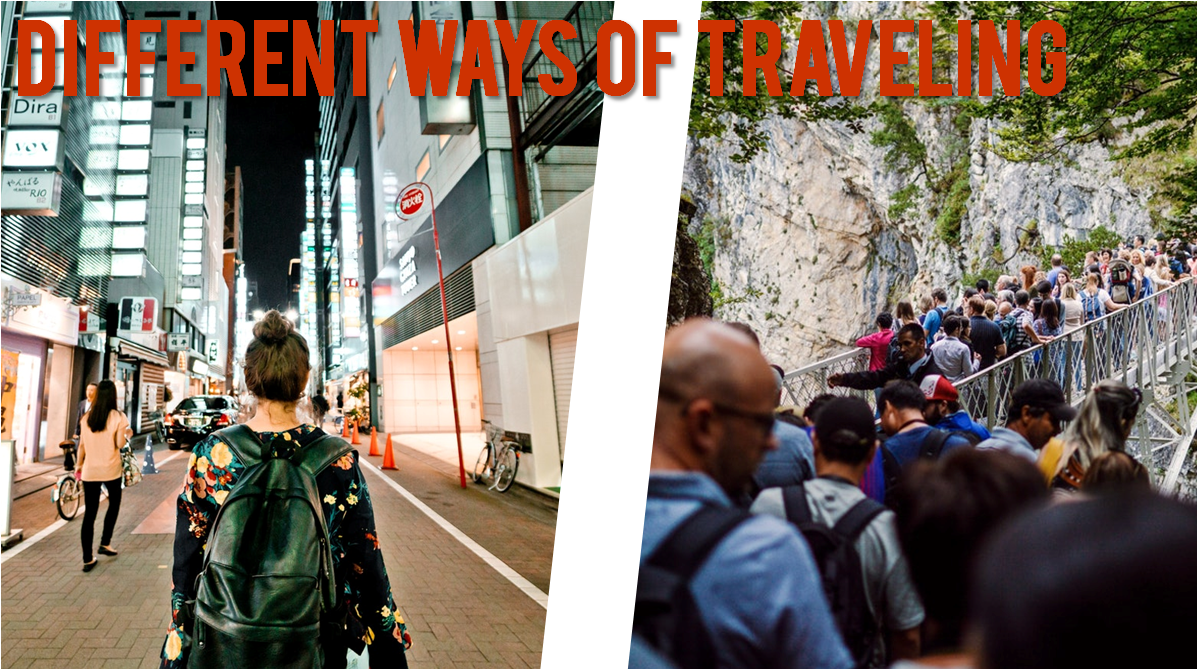
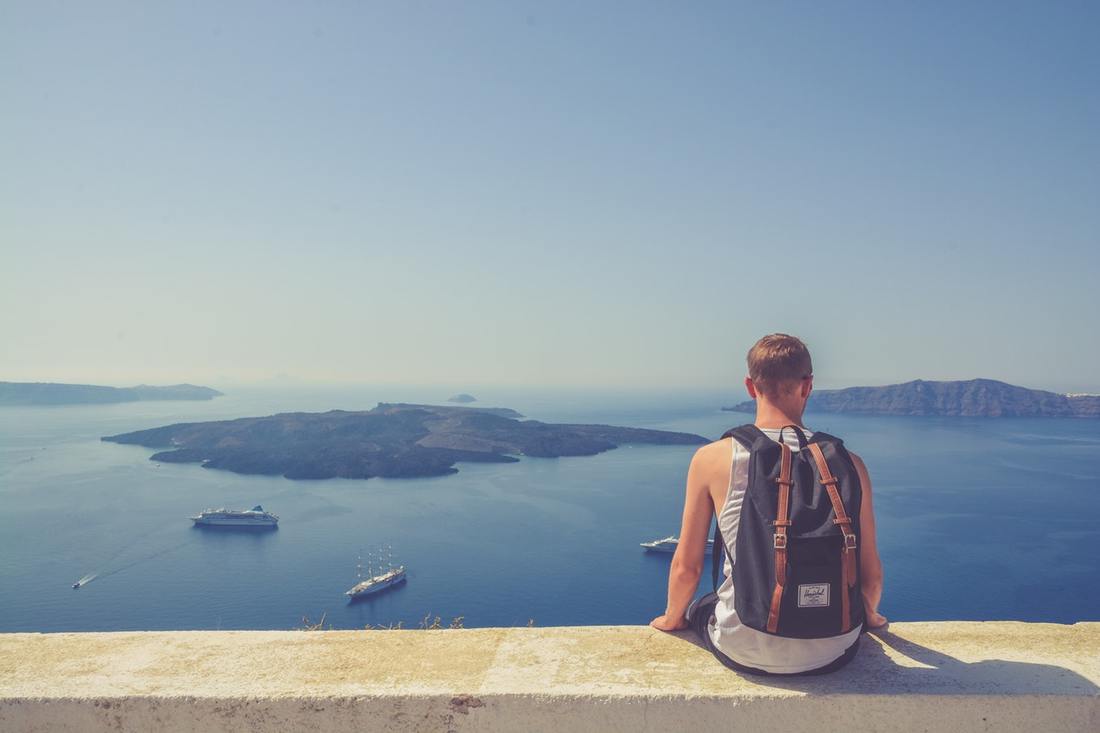
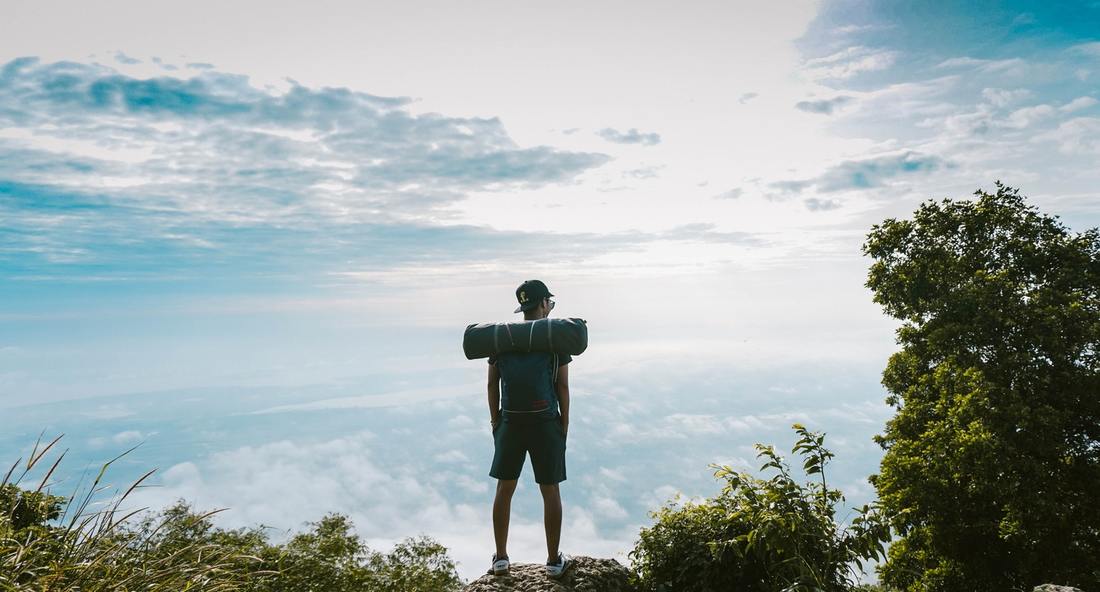
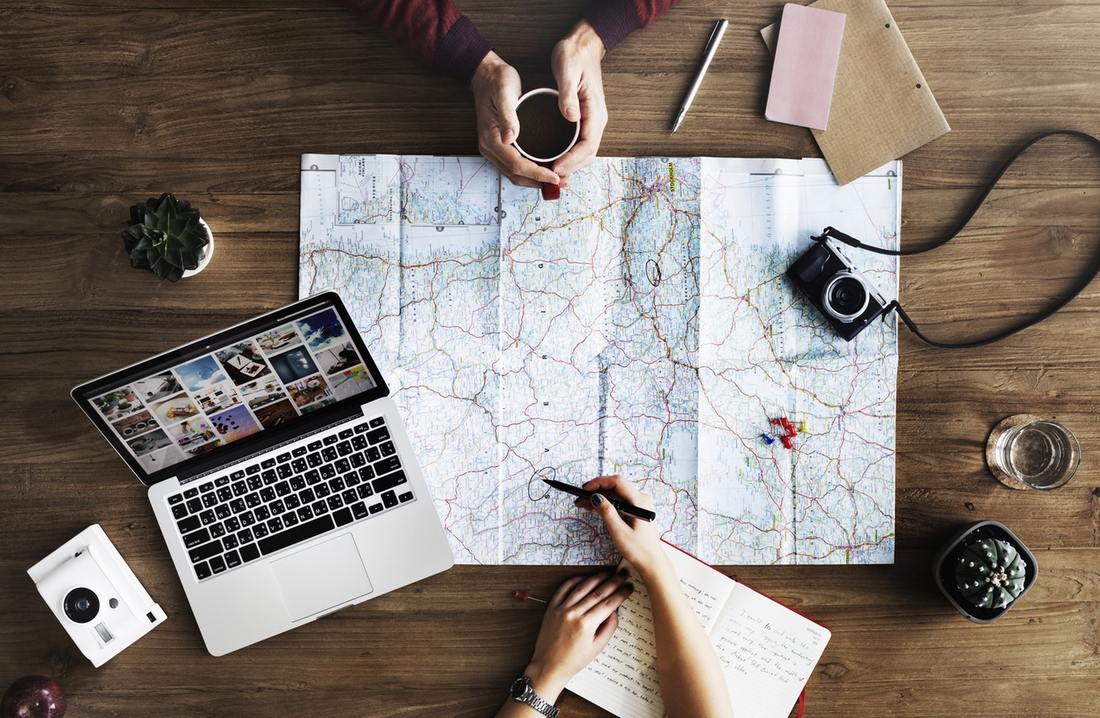
 RSS Feed
RSS Feed